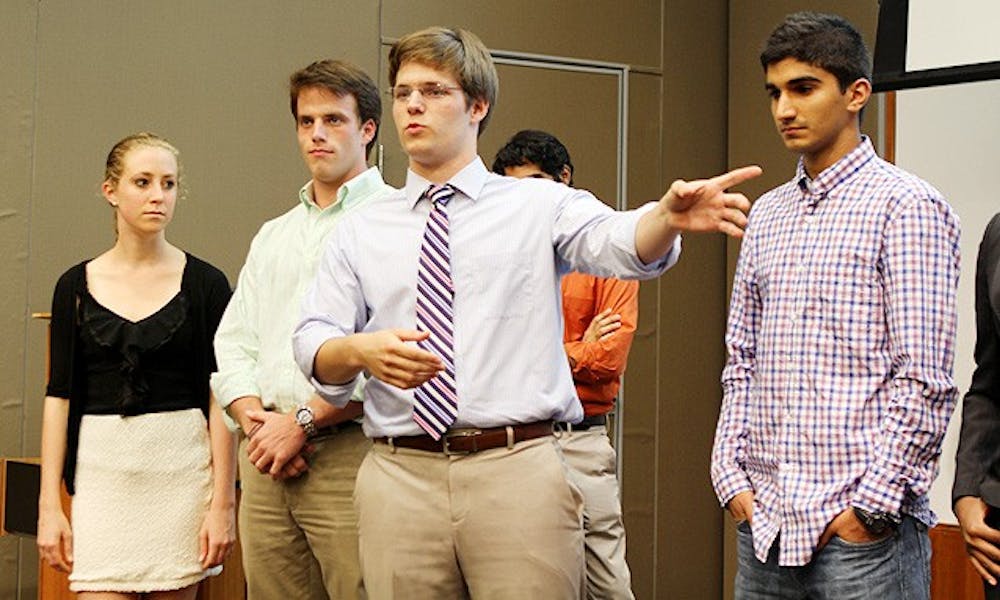Beginning this spring, elections for upperclassmen positions in Duke Student Government may take place in a different form.
DSG Executive Vice President Gurdane Bhutani, a junior, said for at least the past four years, spring elections have typically consisted of two elections—one for executive positions such as president and executive vice president, and another for Senate positions. A piece of legislation introduced by Bhutani at DSG’s first meeting Wednesday night, however, seeks to combine them.
Bhutani said in the past, the reason for splitting the elections was to allow candidates who lost executive elections to run for Senate positions. He noted a case when a candidate lost both an executive and Senate position, and attributed his loss in the Senate election to fatigue gained through the executive campaign.
“Students will suffer less election fatigue, thereby improving voter turnout,” Bhutani wrote in the legislation discussed Wednesday.
He added that a joint election would make the Senate election more important and that DSG often has a difficult time recruiting in the Spring for Senate seats.
Bhutani’s legislation was not without opposition. Senator for Durham and regional affairs Marcus Benning, a sophomore, spoke in opposition of the bill, saying that the student body may feel overwhelmed deciding executive positions and Senate positions during the same election.
Ultimately, senator for Durham and regional affairs Gracie Lynne, also a sophomore, motioned to table the issue. After a roll call vote, Lynne’s motion to table passed by a vote of 15 to 10, meaning that the bill will not receive a final vote for about one month.
In other business:
The freshman election schedule was approved by unanimous consent. Petition forms were released Wednesday, and will be due Friday, Sept. 9. Campaigning will begin on Monday Sept. 12, and DSG elections will be the following Monday.
During a question segment with the executive board, DSG President Pete Schork, a senior, said recent campus decisions were made without student input. Responding to a question about the Merchants on Points program reducing its hours, Schork said he had not been consulted.
“We were taken aback by that just like you were,” Schork said.
Similarly, when asked about changes at campus eateries the Tower and the Devil’s Bistro, Schork responded that DSG had no idea that the changes were happening.
“It’s certainly troubling,” Schork said. “You have to consult students first. It’s not okay to act first and notify students later.”
Schork and Bhutani also spoke briefly about their goals for the upcoming school year. Schork spoke to the value of DSG, adding that he hopes members recognize the opportunity to leave a legacy at the University.
“As an institution, we’re going through a lot of change with the house model and West Union, and I think our goal is making sure that old stakeholders are accounted for and that we are working with and growing with the University,” Schork said.
Get The Chronicle straight to your inbox
Signup for our weekly newsletter. Cancel at any time.

